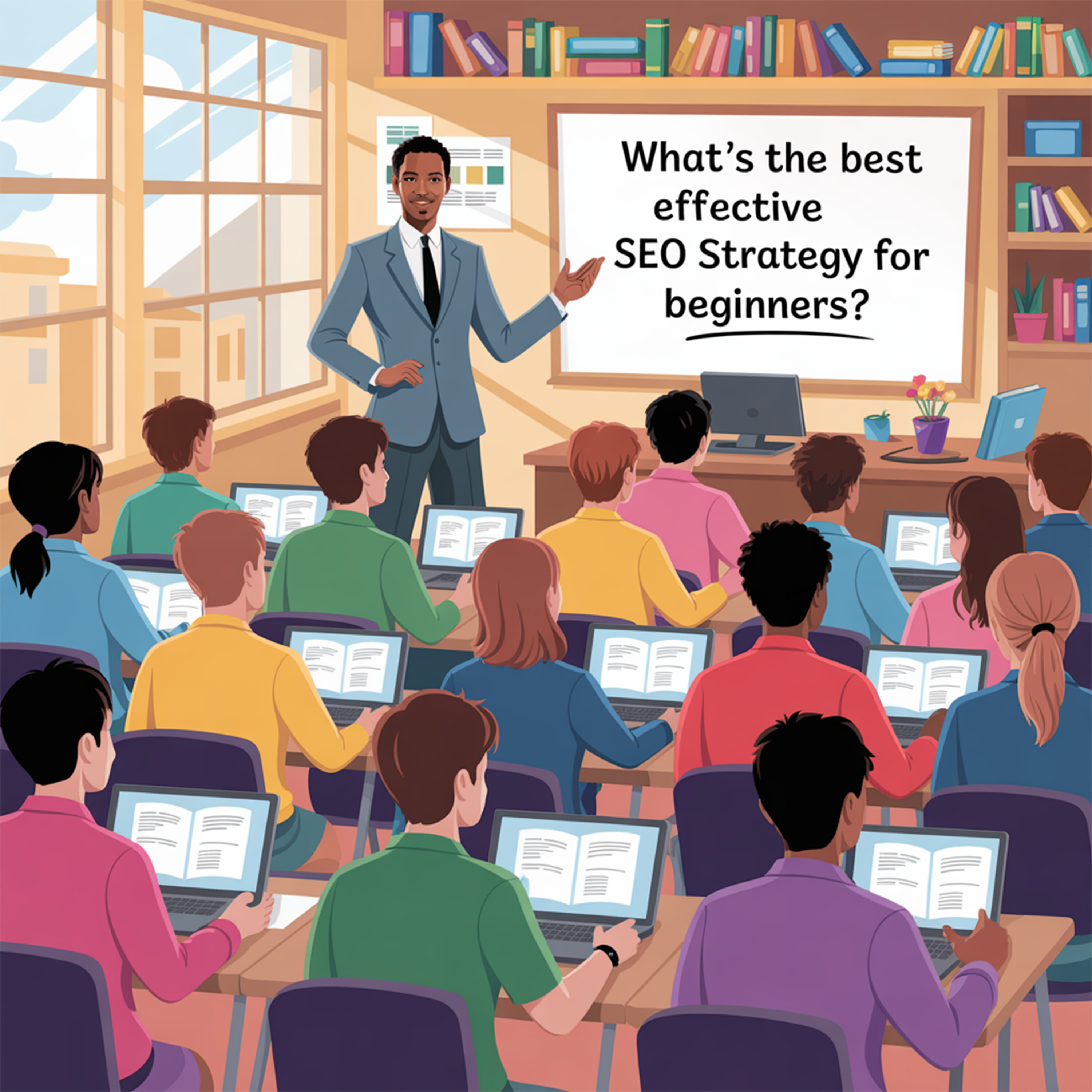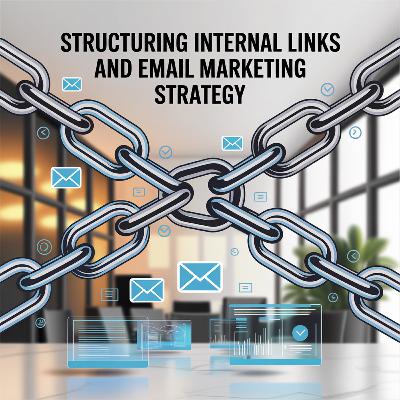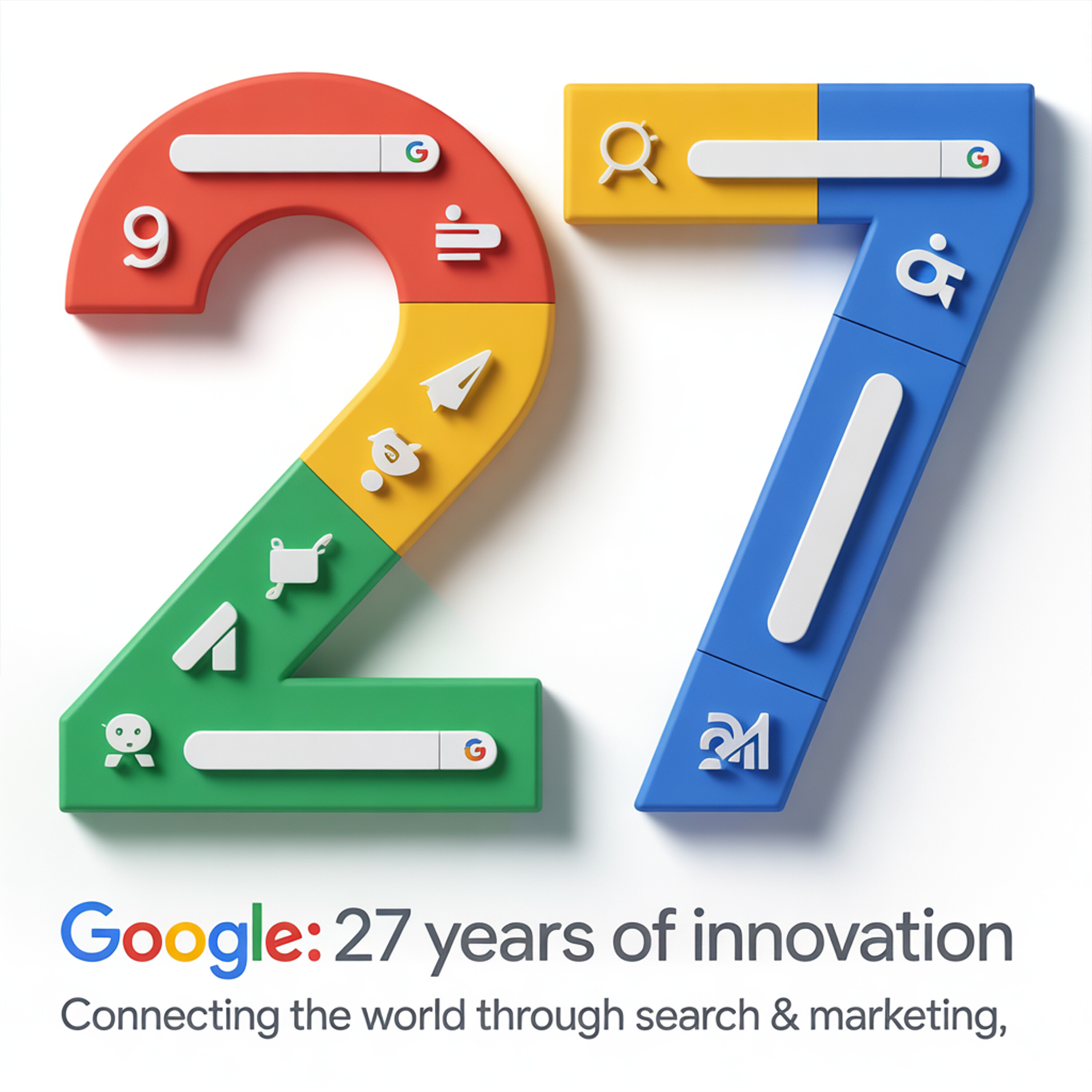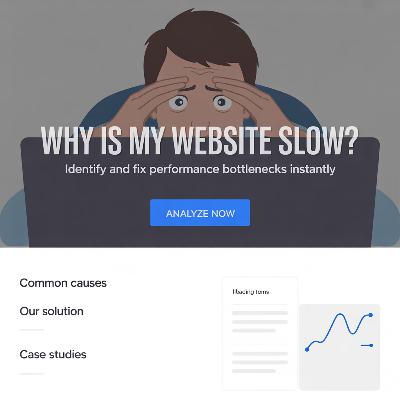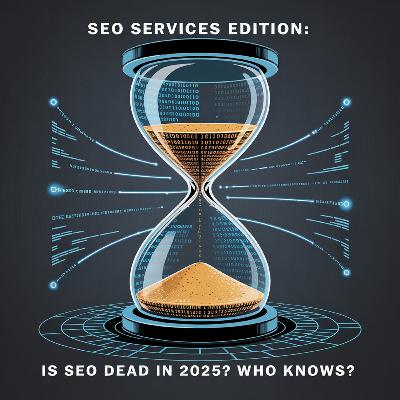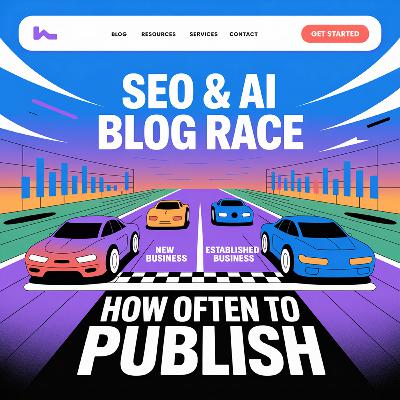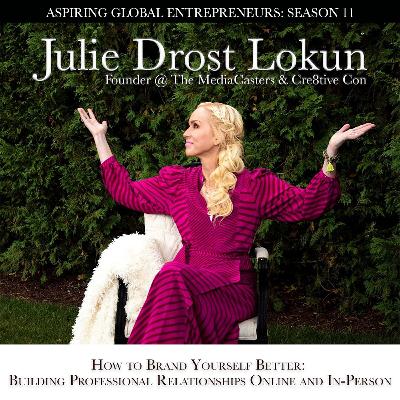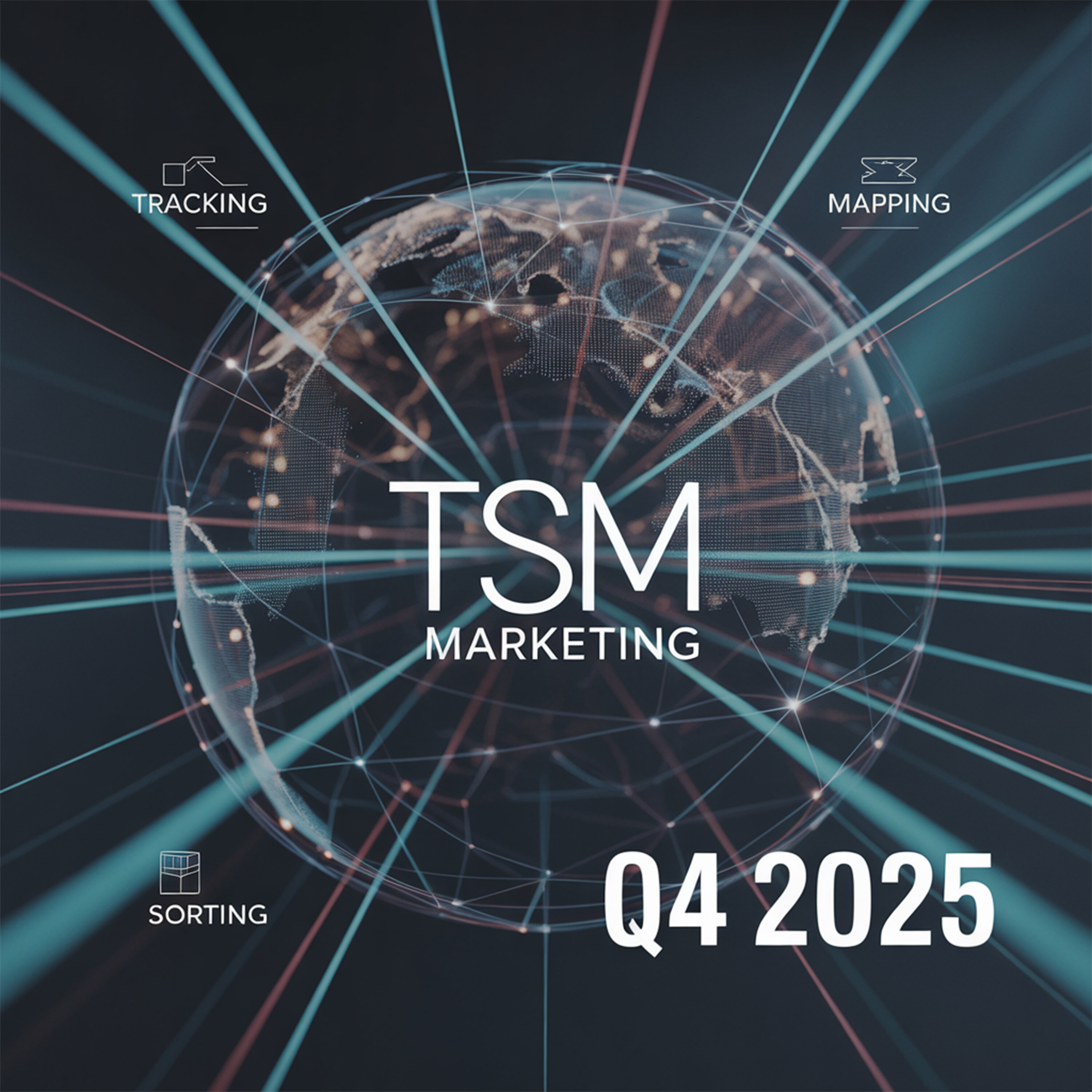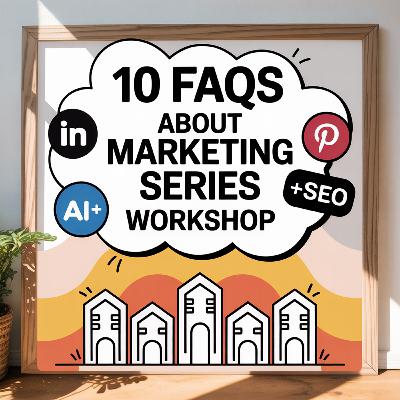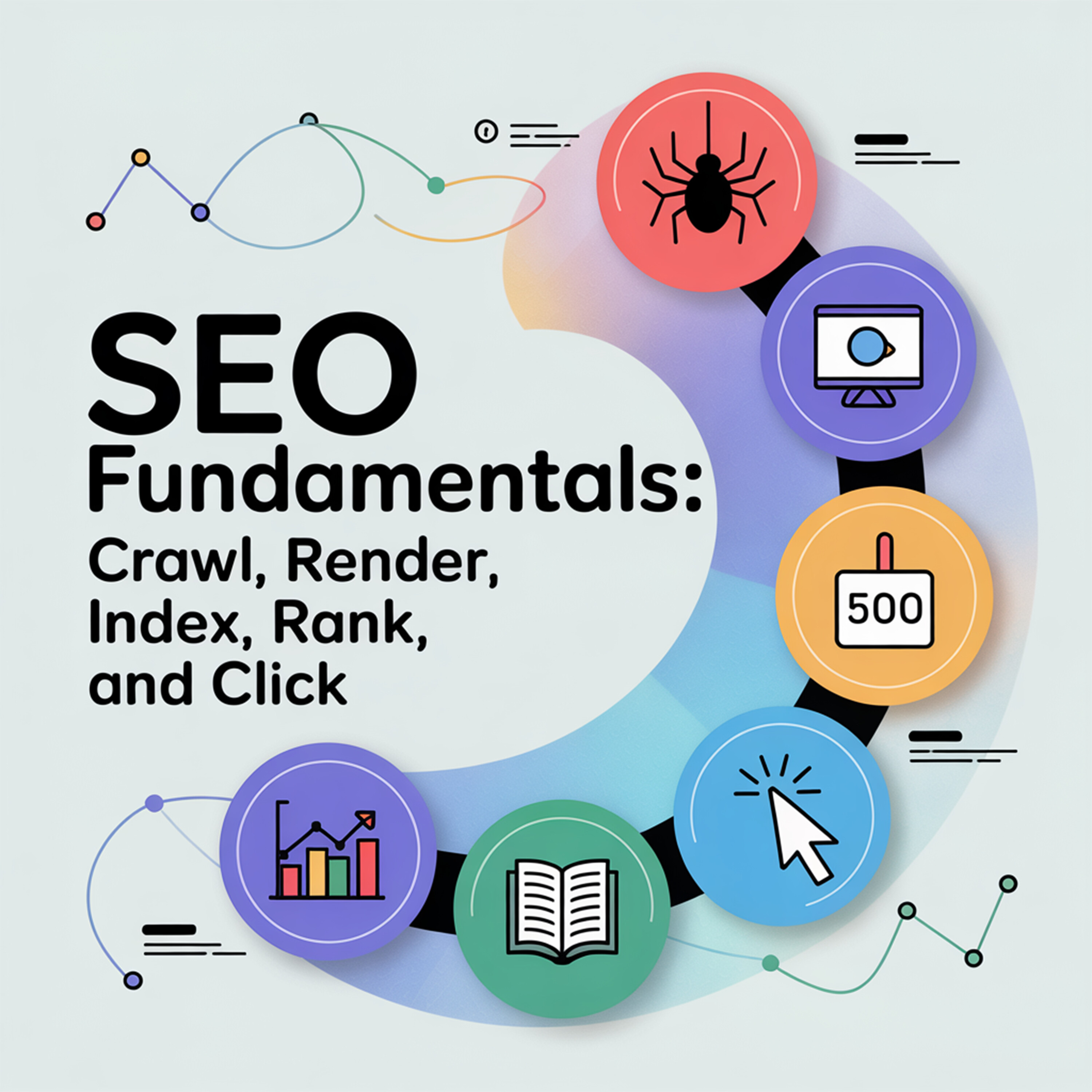What's the Best Effective SEO Strategy for Beginners? Marketing Essentials with Favour Obasi-Ike (Glossary)
Description
What's the Best Effective SEO Strategy for Beginners? Marketing Essentials with Favour Obasi-Ike (Glossary)| Get exclusive SEO newsletters in your inbox.
This discussion offers an in-depth exploration of Search Engine Optimization (SEO) strategies, primarily for beginners and small business owners emphasizing the importance of audience targeting, answering user questions, and consistent content creation (such as blogs and podcasts) to improve online visibility.
Key technical SEO aspects are highlighted, including securing a website with HTTPS, creating and submitting a sitemap (XML file) for search engine readability, and focusing on long-tail keywords for better conversion rates. The conversation also touches on the effective use of various platforms like Clubhouse, Google Analytics, and Google Search Console for data intelligence and content distribution, ultimately aiming to protect, earn, and scale a business's online presence.
Next Steps for Digital Marketing + SEO Services:
FAQs
1. What is the fundamental principle of effective SEO for beginners?
The best SEO strategy for beginners starts with understanding and targeting your audience by asking questions. SEO is fundamentally about providing answers to the questions people are asking. This approach not only helps you create relevant content but also aligns your efforts with how search engines (like Google, ChatGPT, Pinterest, YouTube, and Amazon) operate. By consistently answering these questions, you build authority and credibility, which are crucial for visibility and growth. Tools like Answerthepublic.com, Answersocrates.com, SparkToro.com, and Ubersuggest.com can help you identify these questions and understand audience intent.
2. Why is audience understanding crucial for SEO and content creation?
Understanding your audience is paramount because it allows you to create content that directly addresses their needs and queries. When you create content with the user's questions in mind, you're not just optimizing for algorithms; you're building a connection with your potential audience. This "three-way connection" between you, your audience, and the algorithm ensures that your content resonates with those actively searching for solutions. It helps bypass the algorithm by matching user intent with your offerings, leading to higher engagement and a stronger brand.
3. What are the essential technical SEO elements for a beginner's website?
For a beginner, ensuring strong technical SEO involves several fundamental steps:
- HTTPS Security Connection (SSL): Always secure your website with an HTTPS connection. This creates a privacy area for users, builds trust (indicated by a padlock in the browser), and is a crucial ranking factor for search engines. Websites without this are often flagged as "not secure," leading to immediate user abandonment.
- Sitemap (XML File): A sitemap is like a brain or a map for your website, allowing algorithms to read and understand its structure and content. While humans read HTML (hypertext markup language), algorithms read XML (expandable markup language). Platforms like WordPress (with plugins like Yoast, RankMath), Squarespace, Shopify, and Wix automatically generate sitemaps, but they must be connected to tools like Google Search Console and Google Analytics to be fully activated and effective.
- No Broken or Duplicated Links: Regularly check for and fix broken links and avoid duplicating content, as these issues can confuse search engines and negatively impact your ranking.
4. How important are blogs and consistent content creation for SEO?
Blogs (or articles, sources) are essential because they tell the world you have something valuable to say. Websites like Wikipedia, Reddit, Shopify, and Canva all leverage blogs to provide information. A consistent blogging strategy feeds your website with good, indexable information that can be submitted to various search engines (Google, Yahoo, Microsoft) and AI platforms (ChatGPT). This consistency helps you earn credibility, which in turn leads to broader distribution across different platforms, strengthening your online presence. For new businesses, publishing content 1-2 times a week can show significant results within 3-6 months.
Glossary of Episode Key Terms: SEO for Beginners
A
Algorithm: A set of rules or instructions that a search engine uses to rank websites and determine the relevance of content to a user's query.
AnswerThePublic.com / Answersocrates.com/ SparkToro.com / Ubersuggest.com: Website tools used for keyword research and understanding audience questions and interests.
Article: A piece of written content on a website, essential for SEO and establishing expertise.
Audience Targeting/Marketing: Focusing marketing efforts on a specific group of consumers who are most likely to be interested in a product or service.
Access Links: See Backlinks.
B
Backlinks/Referral Links/Access Links/Image Links: Different types of links pointing back to a website, which are crucial for SEO authority.
Binary Code: A computer language that uses only two symbols, typically 0 and 1, to represent information.
Blog: A section of a website featuring regularly updated written content.
Bootstrapping: Starting a business with little or no outside capital, relying on personal finances or operating revenues.
Bottom of Funnel: The stage in the customer journey where users are ready to convert; content here targets these users.
Broken Links: Hyperlinks that point to non-existent or moved pages, negatively affecting user experience and SEO.
C
ChatGPT/Perplexity/Pinterest/YouTube/Amazon: Examples of platforms where users search for information, and SEO strategies can be applied to increase visibility.
Clubhouse Plus: A paid feature on the Clubhouse app, offering tools to enhance user experience and business growth.
Content Distribution: The process of publishing and promoting content across various platforms and channels.
Content Reproduction/Publish/Distribute: The process of creating, making available, and spreading content across various channels.
Conversion Opportunities/Lifts/Engagement: Metrics indicating how often users take a desired action (e.g., signing up, purchasing), how much those actions increase, and how users interact with content.
Credibility: The quality of being trusted and believed in, built through consistent and valuable content.
D
Data Intelligence/Market Intelligence: Gathering and analyzing information to understand market trends, customer behavior, and competitive landscapes.
Duplicated Links: Multiple links pointing to the same content, which can confuse search engines and dilute link equity.
F
FAQs (Frequently Asked Questions): A section of a website that provides answers to common customer questions, useful for both users and algorithms.
G
Google Analytics: A free web analytics service that tracks and reports website traffic, providing insights into user behavior.
Google Business Profile (formerly Google My Business): A free tool from Google that helps businesses manage their online presence across Google, including Search and Maps.
Google Developers: A platform for developers to learn about and use Google technologies.
Google Search Central (formerly Google Webmasters): A resource provided by Google for website owners to improve their site's visibility in Google Search.
Google Search Console: A free web service by Google that helps website owners monitor their site's performance in Google Search results and troubleshoot issues.
H
High Volume Searches: Refers to keywords that are searched for a large number of times by users.
HTML (HyperText Markup Language): The standard markup language for documents designed to be displayed in a web browser, forming the readable text and links on a webpage.
<

